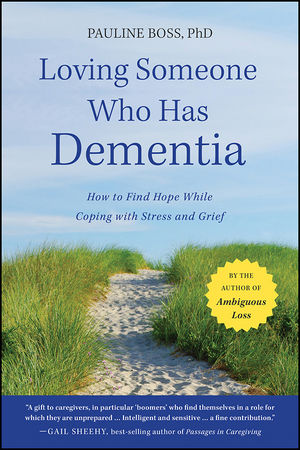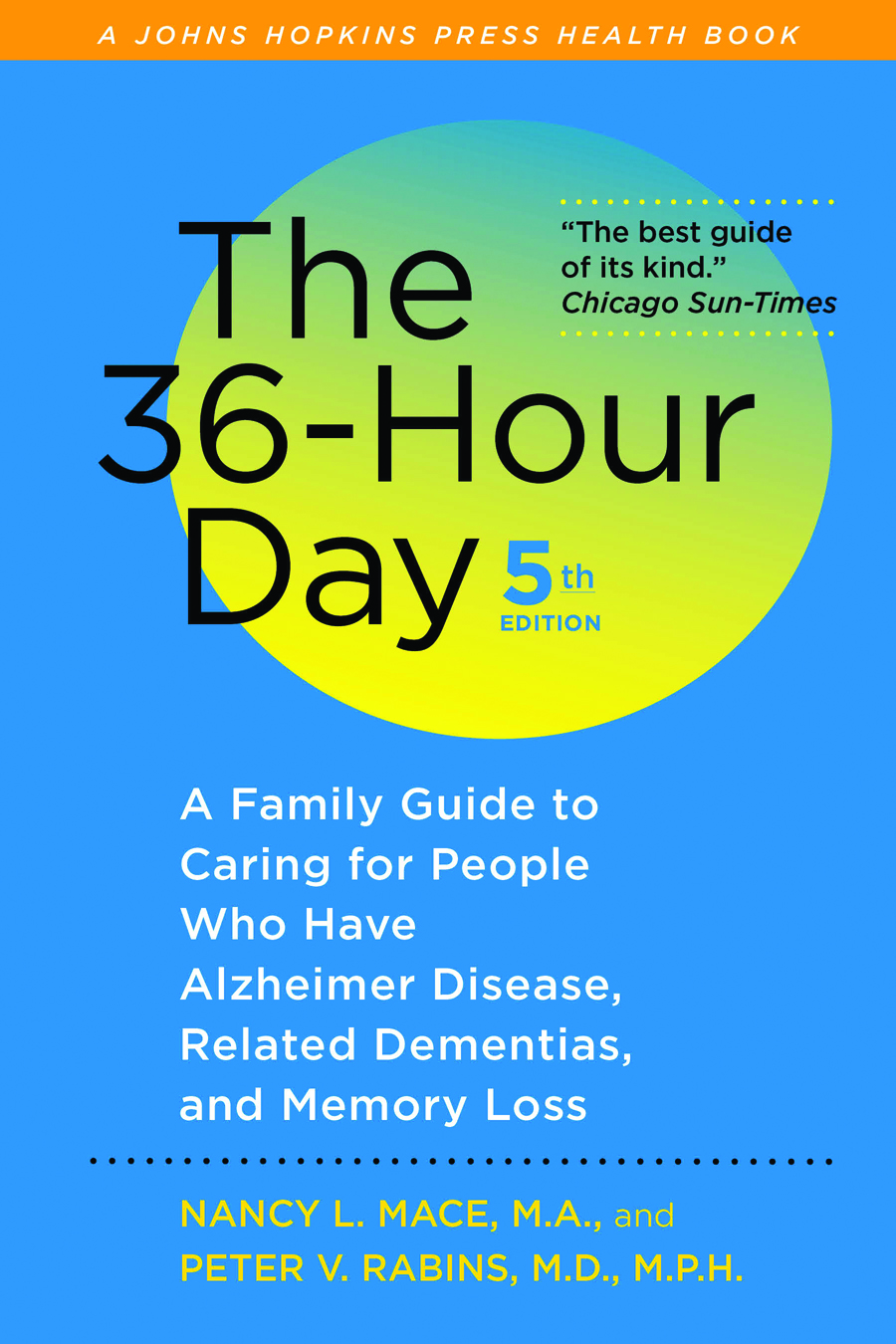Financial Problems May Start Earlier in Dementia Than Many Think, Duke Study Finds
By Stacey Burlilng — 2019
The study also found that financial problems were correlated with changes in the brain that are a sign of Alzheimer's disease.
YOU MIGHT ALSO LIKE
CLEAR ALL
BY TOPIC
BY TEACHER
BY TYPE
FILTER

TOPIC
- Caregiver Well-Being (43)
- Communication Skills (33)
- Relationship with Money (31)
- Illness and Injury (26)
- Compassion Fatigue (24)
- Marriage (23)
- Self-Development (21)
- Cancer (20)
- Intimacy (15)
- Neurodiversity (14)
- Living with Illness (13)
- Self-Reflection Practices (13)
- Authenticity (12)
- Divorce and Breakup (12)
- Neuroscience (12)
- Brain Health (11)
- Athlete Well-Being (10)
- Family Dynamics (10)
- Mind-Body Connection (10)
- Resilience (10)
- Self-Care (10)
- Self-Discovery (10)
- ADD/ADHD (9)
- Friendship (9)
- Memory (9)
- Offering Support to Others (9)
- Parenting (9)
- Diet and Nutrition (8)
- Emotional and Mental Health (8)
- Self-Control (8)
- Self-Healing (8)
- Transformation (8)
- Chronic Health Conditions (7)
- Entrepreneurship (7)
- Financial Instability (7)
- Goal Setting (7)
- Letting Go (7)
- Love (7)
- Self-Limiting Beliefs (7)
- Self-Reckoning (7)
- Toxic Relationships (7)
- Well-Being (7)
- Withholding (7)
- Work Relationships (7)
- Work-Life Balance (7)
- Anger (6)
- Anxiety (6)
- Autism (6)
- Decision Making (6)
- Empowerment (6)
- Finding Meaning (6)
- Forgiveness (6)
- Grief (6)
- Grit (6)
- Human Potential (6)
- Identity (6)
- Manifestation (6)
- Passive-Aggressive Behavior (6)
- Presence (6)
- Self-Acceptance (6)
- Spiritual Growth (6)
- Spiritual Healing (6)
- Buddhism (5)
- Emotional Intelligence (EQ) (5)
- Empathy (5)
- Focus (5)
- Habit Formation (5)
- Happiness (5)
- Honoring Emotion (5)
- Inner Life (5)
- Inner Strengths (5)
- Memoir (5)
- Self-Actualization (5)
- Self-Love (5)
- Self-Realization (5)
- Self-Reliance (5)
- Self-Worth (5)
- Sleep (5)
- Speaking Your Truth (5)
- Spiritual Life (5)
- Stress Management (5)
- Work Challenges (5)
- Aging (4)
- Anger Management (4)
- Asking for Help (4)
- Autoimmune Disease (4)
- Awareness (4)
- Child’s Emotional Growth (4)
- Chronic Pain (4)
- Creative Well-Being (4)
- Disconnection (4)
- Exercise (4)
- Guilt (4)
- Habits of Mind (4)
- Intention (4)
- Joy (4)
- Leadership (4)
- Mindfulness Practices (4)
- New Relationships (4)
- Peak Performance (4)
- Perception (4)
- Personal Development (4)
- Physical Health (4)
- Self-Compassion (4)
- Setting Limits and Boundaries (4)
- Sex (4)
- Soul Mission (4)
- The Feldenkrais Method (4)
- Trust (4)
- Acceptance (3)
- Addiction (3)
- Collaboration (3)
- Compassion (3)
- Connection (3)
- Courage (3)
- Death and Dying (3)
- Death or Loss of a Parent (3)
- Depression (3)
- Drug Addiction (3)
- Dysfunctional Childhood (3)
- Failure (3)
- Imagination and Creativity (3)
- LGBTQIA Relationships (3)
- Mindfulness (3)
- Narcissism (3)
- Passion (3)
- Relationship with Time (3)
- Self-Expression (3)
- Stoicism (3)
- Vulnerability (3)
- Work Ethic (3)
- Accepting Love (2)
- Addiction Recovery (2)
- Attachment Theory (2)
- BIPOC Well-Being (2)
- Breathwork (2)
- Child’s Anxiety (2)
- Competition (2)
- Conflict Resolution (2)
- Death or Loss of a Loved One (2)
- Economic Justice (2)
- Emotional Labor (2)
- Endurance (2)
- Female Empowerment (2)
- Following Bliss (2)
- Hero’s Journey (2)
- Highly Sensitive People (2)
- Hope (2)
- Indigenous Well-Being (2)
- Integrative Medicine (2)
- Integrity (2)
- Interdependence (2)
- Jealousy/Envy (2)
- Jungian Analysis (2)
- Kids and Sports (2)
- Life Challenges (2)
- Loss of Partner/Spouse (2)
- Masculine/Feminine Dynamics (2)
- Meditation (2)
- Mental Health Challenges (2)
- Moral Philosophy (2)
- Motivation (2)
- Negative Self-Talk (2)
- Nonviolence (2)
- Philosophical Approaches (2)
- Positive Self-Talk (2)
- Poverty/Economic Inequality (2)
- Search for Purpose (2)
- Self-Discipline (2)
- Self-Esteem (2)
- Shame (2)
- Social Anxiety (2)
- Stress (2)
- Suffering (2)
- Sustainability (2)
- Talk Therapy (2)
- Time Management (2)
- Unfulfilled Career (2)
- Values (2)
- Willpower (2)
- Women’s Well-Being (2)
- A Course in Miracles (1)
- Abandonment (1)
- Access to Education (1)
- Activism/Service (1)
- Adaptability (1)
- Affirmations (1)
- AIDS (1)
- Anorexia (1)
- Aromatherapy (1)
- Art Therapy (1)
- Awe (1)
- Belonging (1)
- Binge Eating (1)
- Biohacking (1)
- Buddha Nature (1)
- Building Character (1)
- Bulimia (1)
- Burnout (1)
- Challenges with Teens (1)
- Child’s Challenging Behavior (1)
- Chronic Anxiety (1)
- Chronic Fatigue (1)
- Codependency (1)
- Cognition (1)
- Community Healing (1)
- Confidence (1)
- Conscious Evolution (1)
- Criticism and Rejection (1)
- Curiosity (1)
- Death or Loss of a Sibling (1)
- Dharma (1)
- Domestic Abuse (1)
- Eating Disorders (1)
- Ego (1)
- Ego Transcendence (1)
- Embodiment (1)
- Energy Balancing (1)
- Energy Healing (1)
- Enneagram (1)
- Epigenetics (1)
- Facing Own Death (1)
- Fate (1)
- Fatherhood (1)
- Fatigue (1)
- Fear (1)
- Fellowship and Community (1)
- Freedom (1)
- Gender Challenges (1)
- Grace (1)
- Gratitude (1)
- Growth Mindset (1)
- Healthy Eating (1)
- Higher Calling (1)
- Holism (1)
- Hospice (1)
- Household Labor (1)
- Infidelity (1)
- Inflammation (1)
- Inner Child (1)
- Inner Peace (1)
- Insomnia (1)
- Learning Styles (1)
- LGBTQIA Sexuality (1)
- Light Therapy (1)
- Loneliness (1)
- Love Languages (1)
- Lovingkindness (1)
- Magick (1)
- Massage (1)
- Men’s Well-Being (1)
- Midlife Crisis (1)
- Motherhood (1)
- Personality Typing (1)
- Play (1)
- Positive Thinking (1)
- Problem Solving (1)
- Psychedelic Journey (1)
- Psychology (1)
- Psychology and Spirituality (1)
- PTSD (1)
- Quantum Physics (1)
- Raising Daughters (1)
- Regret (1)
- Retirement (1)
- Ritual (1)
- Sleep Disorders (1)
- Spiritual Awakening (1)
- Spiritual Development (1)
- Spiritual Fasting (1)
- Spirituality and Health (1)
- Superfoods (1)
- Sutras (1)
- The Divine (1)
- Tibetan Buddhism (1)
- Transitions (1)
- Trauma Healing (1)
- Visualization (1)
- Wholeness (1)
- Young Adult Well-Being (1)
- Zen Buddhism (1)
FILTER

TEACHER
- Gary Chapman (4)
- Julie Schwartz Gottman (4)
- Maria Nemeth (4)
- C. S. Lewis (3)
- Daniel Amen (3)
- David Perlmutter (3)
- Eckhart Tolle (3)
- Jenny Kassan (3)
- Ramani Durvasula (3)
- Debbie Ford (2)
- Diane Ackerman (2)
- Elaine Aron (2)
- Gary Zukav (2)
- Gay Hendricks (2)
- Harville Hendrix (2)
- Helen LaKelly Hunt (2)
- John Bradshaw (2)
- John Gottman (2)
- Lori Gottlieb (2)
- Lorin Roche (2)
- Marcus Aurelius (2)
- Sharon Strand Ellison (2)
- Terri Cole (2)
- Thich Nhat Hanh (2)
- Alan Cohen (1)
- Amishi Jha (1)
- Amy Morin (1)
- Andrew Solomon (1)
- Arianna Huffington (1)
- Brené Brown (1)
- Brian Tracy (1)
- Bruce Lipton (1)
- Chalene Johnson (1)
- Chan Khong (1)
- Chip Conley (1)
- Christopher Penczak (1)
- Daniel Goleman (1)
- David Spiegel (1)
- don Jose Ruiz (1)
- Donna Jackson Nakazawa (1)
- Dorothy Firman (1)
- Edward Hallowell (1)
- Elizabeth Gilbert (1)
- Gabor Maté (1)
- Iyanla Vanzant (1)
- Jack Canfield (1)
- James Hollis (1)
- Jane Roberts (1)
- Jean Shinoda Bolen (1)
- Jeff Foster (1)
- Jeffrey Mishlove (1)
- John Welwood (1)
- Judith Orloff (1)
- Judson Brewer (1)
- Julia Cameron (1)
- Karen Casey (1)
- Kathlyn Hendricks (1)
- Ken Wilber (1)
- Kenneth Pelletier (1)
- Kim Eng (1)
- Lissa Rankin (1)
- Louise Hay (1)
- Lynne Twist (1)
- Marianne Williamson (1)
- Marie Forleo (1)
- Matt Kahn (1)
- Maya Angelou (1)
- Melanie Joy (1)
- Nikki Mirghafori (1)
- Noah Elkrief (1)
- Oliver Sacks (1)
- Ondrea Levine (1)
- Oprah Winfrey (1)
- Panache Desai (1)
- Rick Hanson (1)
- Robert Augustus Masters (1)
- Russell Brand (1)
- Sanjay Gupta (1)
- SARK (1)
- Shefali Tsabary (1)
- Stan Tatkin (1)
- Stephen Covey (1)
- Stephen Levine (1)
- Sylvia Boorstein (1)
- Tara Brach (1)
- Terry Real (1)
- Thomas Moore (1)
- Thubten Chodron (1)
- Toni Bernhard (1)
- Tony Gaskins Jr. (1)
- Tony Robbins (1)
- Tonya Rapley-Flash (1)
- William Bloom (1)
- Wim Hof (1)
- Yung Pueblo (1)
- Zainab Salbi (1)










